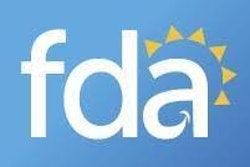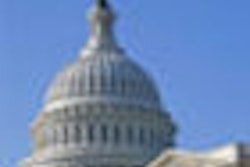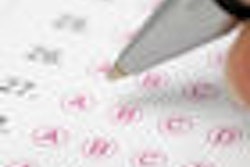
The Florida Board of Dentistry has voted to switch to a regional testing system, joining the majority of states with reciprocal agreements that allow out-of-state dentists to practice there.
The policy is not retroactive and will only be an option for those who took the test after Oct. 1, 2011.
Florida is one of the last states to switch from administering its own state board exam to accepting dental graduates who have passed the American Dental Licensing Examination (ADLEX) test, one of the six regional tests in the U.S., according to Thad Morgan, DMD, former chair of the Florida Board of Dentistry.
More than 30 states have reciprocity policies that allow new graduates to take a regional exam and practice in states that have agreed to accept that test. Graduates then only have to take the state's law test to start practicing there.
To accommodate the change, the ADLEX test had to be modified because it had significant differences from Florida's test, Dr. Morgan told DrBicuspid.com.
Florida's state boards were the hardest to pass in the country, he noted, with fail rates of 20% to 25%. In addition, Florida tests more applicants than most states, second only to New York.
“I think their fears are unwarranted.”
— Thad Morgan, DMD, former chair of
the Florida Board of Dentistry
The change will save Florida the expense of doing validity testing for its state tests, according to the board. Florida Gov. Rick Scott recently recommended that the test be outsourced as a budget-saving measure.
Many rank and file members of the Florida Dental Association (FDA) initially opposed the change, fearing competition from a huge influx of out-of-state dentists, according to Dr. Morgan. But he and other FDA members say the change will also benefit those Florida dentists who want to practice in other states.
"I think their fears are unwarranted," Dr. Morgan said. "Not only did it [not having reciprocity] keep people from coming to Florida, but it trapped Florida dentists because if they wanted to practice elsewhere, they would have to take a new test."
Similar situation in South Carolina
For example, Dr. Morgan's fiancée is from South Carolina, but he couldn't move there and practice dentistry without taking that state's board exam because Florida didn't have a reciprocity policy.
"It's a pain and it's expensive," he stated. "I've been practicing 20 years and I helped develop our board exam, and I'm supposed to take a test in South Carolina to see if I can do a filling? It's not only ridiculous for me, but it's the same thing for people in South Carolina who want to come to Florida."
South Carolina dentists had the same fears about competition from out-of-state dentists before they switched to a regional exam, Dr. Morgan noted. But such fears were unfounded, he said.
Dr. Morgan's class at the Medical University of South Carolina in Charleston was the last class that could not take regional board tests.
"We were stuck in South Carolina," he said. "There were fears that South Carolina would face huge competition from an influx of dentists, but it never happened."
Frank Catalanotto, DMD, a professor and chair of the department of community dentistry and behavioral sciences at the University of Florida College of Dentistry, also supports the notion of reciprocity.
"It allows students from multiple states to take the exam in their home state or home school, and all they have to do is pass the Florida dental law exam," he told DrBicuspid.com.
A single national exam, similar to that in Canada, also would be a positive change, according to Dr. Catalanotto. "That's what a lot of us are hoping for: moving toward an exam that will provide better mobility for graduates to move around the country," he said.
Florida, like most states, will continue to use live patients as part of the test.
"The economics of dental practice delineate where people are going to practice more than a licensure exam," Larry Nissen, DDS, past president of the FDA, told DrBicuspid.com. "It's about where are practices available and where are patients available?"



















